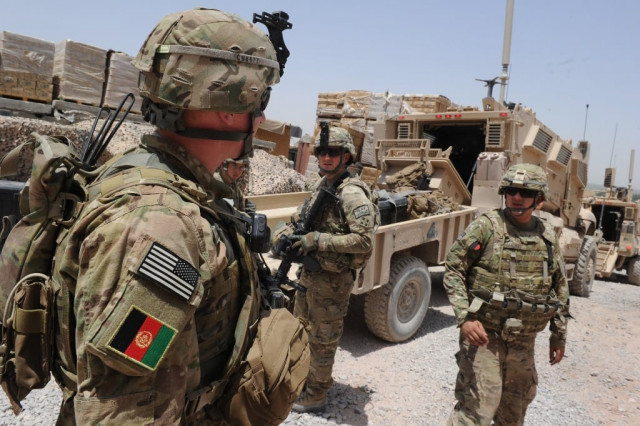US general voices grave doubts about Taliban's reliability
It remains unclear whether the Taliban will allow US forces, who they call invaders, to peacefully exit the country

A leading U.S. general voiced “grave doubts” on Tuesday about the Taliban’s reliability as a negotiating partner for U.S. and Afghan diplomats following the U.S. military’s withdrawal from America’s longest war.
Marine General Kenneth “Frank” McKenzie, head of U.S. Central Command, also suggested it was still unclear how exactly the United States would detect and act on any threats from al Qaeda or Islamic State that emerge after the pullout, saying military planners were crafting options.
But the United States has not struck military basing agreements with Afghanistan’s neighbors and is even still working on a diplomatic agreement governing security forces who stay at the U.S. embassy in Kabul, McKenzie said.
Taken together, McKenzie’s testimony to the House Armed Services Committee underscores the uncertainties facing the Pentagon as it carries out President Joe Biden’s order for all U.S. troops to leave Afghanistan by Sept. 11.
The drawdown is due to begin by May 1.
“I have grave doubts about the Taliban’s reliability ... but we need to see what they’re going to do here,” McKenzie told the committee. “If they want any form of future international recognition for Afghanistan ... they’re going to have to keep the agreements that they’ve made.”
He spoke on a day when three sources told Reuters that a Washington-backed Afghan peace conference in Turkey scheduled for Saturday had been postponed over non-participation by the Taliban.
The Taliban ruled Afghanistan from 1996 to 2001, when they were ousted by U.S.-led forces. Since then they have waged a long-running insurgency and still control wide swathes of territory.
It remains unclear whether the Taliban will allow U.S. forces, who they call invaders, to peacefully exit the country.
Quotes: Officials react as Biden moves to pull troops from Afghanistan by September 11
McKenzie said the United States did not have an agreement with the Taliban that would guarantee that the insurgents do not attack U.S. forces after May. 1, but that the military was prepared in case they did.
Biden’s decision to completely withdraw has raised concerns that the country could erupt in full-scale civil war, providing al Qaeda space in which to rebuild and plan new attacks on U.S. and other targets.
A United Nations report in January said there were as many as 500 al Qaeda fighters in Afghanistan and that the Taliban maintained a close relationship with the Islamist extremist group. The Taliban denies al Qaeda has a presence in Afghanistan.
“The known aspiration of these groups to launch attacks against the United States hasn’t gone away. And it’s there right now,” McKenzie said, even as he acknowledged those groups had little ability at the moment to act on those aspirations.
Announcing his decision to withdraw troops, Biden said the United States would monitor the threat, reorganize counter-terrorism capabilities and keep substantial assets in the region to respond to threats to the United States emerging from Afghanistan.
But, asked whether there were any agreements with countries around Afghanistan to base forces, conduct lethal strikes or carry our surveillance, McKenzie said: “At this time, we have none of those agreements in place.”
McKenzie said he would provide the defense secretary a plan for counter-terrorism forces outside of Afghanistan by the end of the month. He cautioned that the loss of the current U.S. military network in Afghanistan, and the intelligence capability it allows, would have an impact.
McKenzie said that most contractors and all U.S. contractors would leave Afghanistan with U.S. forces. The remarks left open the possibility that internationally-financed contractors supporting Afghan forces might remain, at least for a period.
As of October, there were more than 18,000 contractors, including 6,000 Americans and 7,000 third-country nationals, according to a U.S. government watchdog.
Experts believe the Afghan air force and other elements of Afghan security forces would collapse without external contracting support.



















COMMENTS
Comments are moderated and generally will be posted if they are on-topic and not abusive.
For more information, please see our Comments FAQ